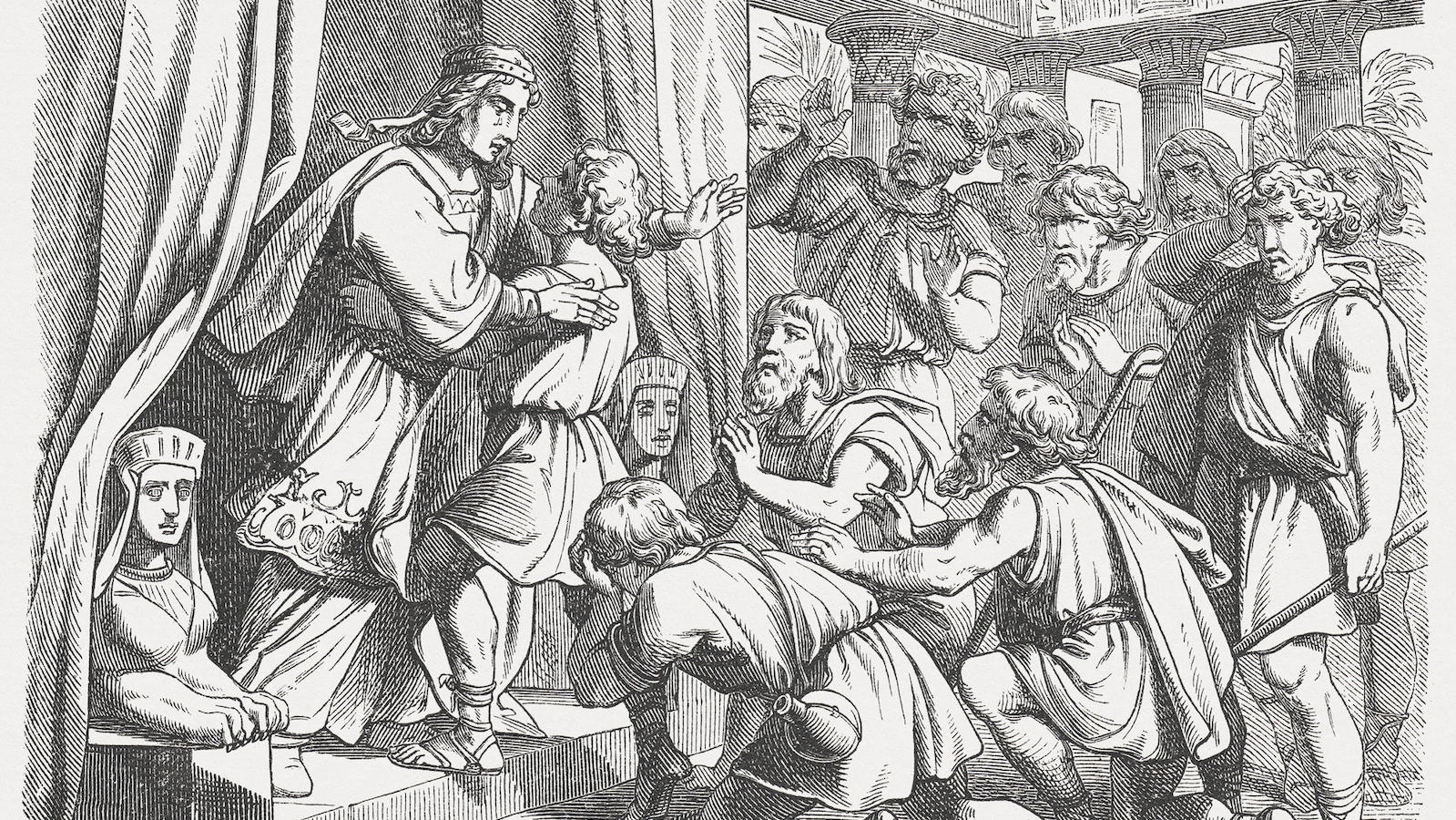Commentary on Parashat Vayeshev, Genesis 37:1-40:23
Parashat Vayeshev begins the most complete narrative in the Bible, opening with Joseph being sold into slavery by his brothers and culminating 13 chapters later with Joseph rising to prominence to save Egypt and his own family from famine.
Joseph will occupy center stage for the remainder of the book of Genesis. But Joseph’s older brother, Judah, also plays an essential role in the story. Judah takes charge in determining Joseph’s fate and suggests that the brothers sell him to a slave caravan. They consent and Judah becomes their de facto leader. As such, he alone is the brother who can potentially heal the family rift that resulted from selling Joseph and then deceiving his father Jacob into thinking that a wild animal devoured Joseph. In this Torah portion, we see the beginning of Judah’s transformation from apathy to empathy, a transformation that will enable him to heal his family.
The opening chapters of Vayeshev chronicle a change in Judah’s status as his brothers cast him aside for his ill-advised recommendation to sell Joseph into slavery. The text tells us that after the sale, “Judah went down from his brothers.” The medieval commentator Rashi explains that this phrase doesn’t only suggest a physical separation, but a downgrade in Judah’s leadership status. The brothers blame Judah for Jacob’s anguish over the loss of Joseph, saying, “You told us to sell him: if you had told us to send him back to his father, we would also have obeyed you.” (Rashi on Genesis 38:1)
Judah will not regain his status until several chapters later when, having exhausted their food supplies during a devastating famine, Jacob instructs his sons to return to Egypt to procure more food. Judah reminds Jacob that Joseph, now the Egyptian viceroy who hasn’t yet revealed himself to his brothers, had warned them not to return unless their youngest brother Benjamin was with them. Jacob had refused when the eldest son, Reuben, had guaranteed Benjamin’s safe return. But Judah asserts his leadership again and persuades Jacob to risk Benjamin’s life.
With your help, My Jewish Learning can provide endless opportunities for learning, connection and discovery.
Why does Jacob reject Reuben’s promise but accept Judah’s guarantee to be Benjamin’s protector? Judah can influence Jacob because he speaks to him with the empathy born of experience. Jacob had lost his beloved wife Rachel in childbirth, and as far as he knows Joseph is dead too. Another son, Shimon, is imprisoned in Egypt. Likewise, Judah has lost two sons, Er and Onan, and his wife Shuah. Judah’s experience of loss has transformed him from an apathetic son, indifferent to his father’s pain over the loss of Joseph, to one who can feel his father’s pain. Because father and son have experienced similar losses, Jacob doesn’t merely hear Judah’s words — they reverberate in him.
Sometimes, the loss of a loved one can make us angry and bitter. But Judah’s example shows that the opposite can be true, that suffering grievous losses can enable us to better relate to the pain of others. Like Judah, our pain can expand our empathy for others’ suffering. It can teach us to reach out to others with greater empathy and pay forward the kindness of those who offered it when we needed it.
This article initially appeared in My Jewish Learning’s Reading Torah Through Grief newsletter on Dec. 16, 2022. To sign up to receive this newsletter each week in your inbox, click here.
Looking for a way to say Mourner’s Kaddish in a minyan? My Jewish Learning’s daily online minyan gives mourners and others an opportunity to say Kaddish in community and learn from leading rabbis.



